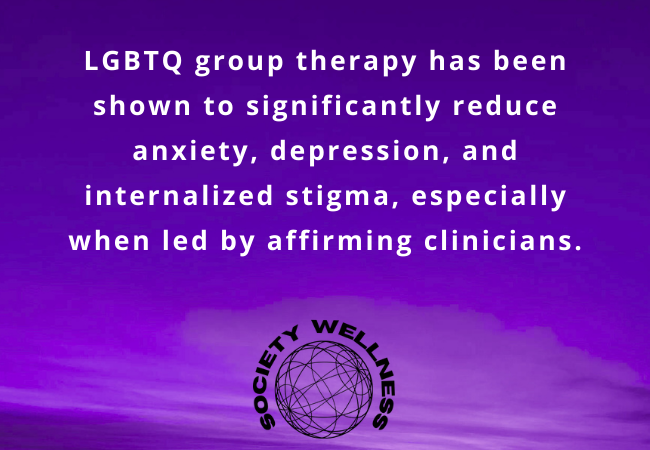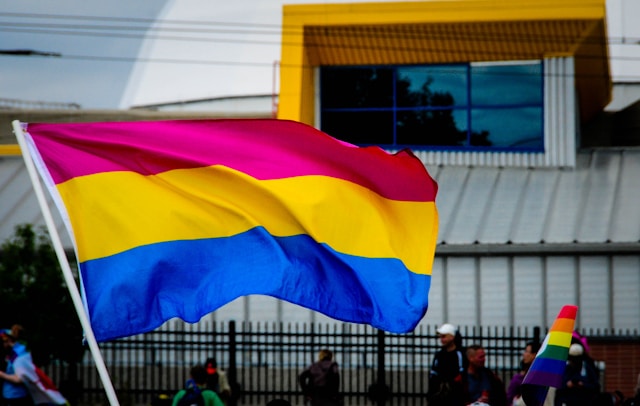In a world where many LGBTQ individuals are still fighting for visibility, safety, and acceptance, mental health support isn’t just a luxury—it’s a lifeline. But for many queer and trans people, healing doesn’t happen in isolation. It happens in community.
That’s the core strength of group therapy.
While one-on-one therapy is valuable, group therapy provides something uniquely powerful for LGBTQ individuals: a space to share lived experiences, dismantle shame, build interpersonal resilience, and heal in solidarity. At LGBTQ Behavioral Health Treatment Center Massachusetts, group therapy is a vital component of our care model—woven into services like LGBTQ Therapy in Massachusetts, LGBTQ Queer Therapy in Massachusetts, and intensive programs including our LGBTQ PHP Treatment and LGBTQ Intensive Outpatient Program in Massachusetts.
In this in-depth article, we’ll explore how group therapy specifically benefits LGBTQ individuals and why it’s a cornerstone of effective, affirming mental health care.
Understanding Group Therapy in the LGBTQ Context
Group therapy is a therapeutic format in which several individuals—often facing similar challenges—meet together under the guidance of one or more licensed therapists. Sessions may be structured around a theme (e.g., trauma, identity, relationships) or open for broader sharing. The power of group therapy lies in its ability to foster empathy, reduce isolation, and allow for the mutual exchange of support.
When tailored for the LGBTQ community, group therapy becomes even more transformative. It offers a rare and invaluable space where queer and trans people can speak freely, be affirmed, and connect with others who share their lived experiences.
Why LGBTQ Individuals Uniquely Benefit from Group Therapy
LGBTQ individuals often carry emotional wounds from:
- Family rejection
- Religious trauma
- Misgendering and invalidation
- Discrimination in education, healthcare, and the workplace
- Internalized homophobia or transphobia
- Violence and harassment
- Cultural erasure
In many cases, this leads to shame, isolation, anxiety, and chronic stress. Group therapy helps address these issues not just through clinical insight—but through collective healing.
Key Benefits of Group Therapy for LGBTQ Individuals
1. Affirmation and Belonging
One of the most damaging myths LGBTQ people face is that they are “alone.” Group therapy shatters that myth. When clients hear others share stories that sound like their own, they experience a powerful sense of validation and emotional safety.
Group therapy:
- Normalizes queer and trans experiences
- Offers peer validation that reduces self-doubt
- Provides a sense of chosen family
- Creates a container for authenticity
For someone who’s never been in a room of affirming voices, group therapy can be life-changing.
2. Reduction of Shame and Self-Stigma
Shame thrives in isolation. For many LGBTQ individuals, this shame is rooted in societal messaging, early childhood rejection, or religious condemnation. In group therapy, clients:
- Speak aloud what they’ve been taught to hide
- Witness others express vulnerability without judgment
- Learn that they are not alone in their struggles
- Practice self-compassion through connection
Over time, this leads to increased self-worth, reduced inner criticism, and empowerment.
3. Skill-Building and Emotional Growth
Group therapy doesn’t just create emotional safety—it’s also a practice ground for real-life relationships.
LGBTQ-specific groups help clients develop:
- Effective communication strategies
- Boundaries and assertiveness
- Emotional regulation techniques
- Conflict resolution skills
- Coping strategies for dysphoria, anxiety, or trauma triggers
The feedback loop in group settings—receiving and offering insight—accelerates growth in ways that individual therapy alone may not.
4. Processing Identity in a Safe Space
For many, understanding or expressing gender identity or sexual orientation is a complex journey. Group therapy provides:
- A nonjudgmental space to question or explore identity
- Exposure to diverse expressions of queerness and transness
- Validation from peers at different stages of the journey
- Reinforcement that fluidity is valid and worthy
This is especially healing for those who were discouraged from asking questions or had their identities dismissed.
5. Healing Trauma Through Community Support
Trauma is common in the LGBTQ community—and often unacknowledged in traditional settings. Group therapy offers:
- A trauma-informed space with shared understanding
- Peer validation of painful experiences (e.g., rejection, abuse, loss)
- A chance to move from “victim” to “survivor” through collective resilience
- Support in navigating triggers in daily life
For many, group therapy becomes a corrective emotional experience—replacing isolation and silence with empathy and connection.
6. Modeling and Motivation
In LGBTQ group therapy, seeing others cope, heal, and grow inspires hope. Members witness:
- Trans clients navigating transition with courage
- Couples rebuilding trust after betrayal
- Individuals coming out to unsupportive families
- Survivors reclaiming joy after trauma
Each story becomes a source of strength. Clients realize: “If they can do it, maybe I can too.”
How Group Therapy Fits into LGBTQ Mental Health Programs
At LGBTQ Behavioral Health, group therapy is built into our intensive programs—ensuring that all clients have access to peer support alongside individual care.
LGBTQ PHP Treatment in Massachusetts
Our Partial Hospitalization Program (PHP) provides full-day, structured mental health care. It is ideal for LGBTQ clients facing:
- Severe depression or anxiety
- Suicidal ideation
- Complex PTSD
- Transition-related distress
Group therapy in PHP includes:
- Daily sessions on identity, trauma, and self-regulation
- Psychoeducation on mental health and LGBTQ-specific stressors
- Gender-affirming support groups
- Creative expression and body image workshops
PHP offers not just treatment—but community immersion for healing.
LGBTQ Intensive Outpatient Program in Massachusetts
Our IOP offers flexible, part-time care for clients who don’t require full-day treatment but need more than weekly therapy.
IOP group therapy includes:
- 3–5 sessions per week
- Focus on emotional processing, resilience, and coping skills
- Groups centered around identity, transition, or interpersonal growth
- Peer feedback and reflection
Clients build deeper self-awareness, practice new behaviors, and feel seen—not just by therapists, but by peers who truly understand.
Examples of LGBTQ Group Therapy Tracks
We offer various group themes depending on client needs and goals, such as:
Gender Affirmation and Transition Support
- Discussing dysphoria and gender euphoria
- Navigating social and medical transitions
- Safety planning for coming out
- Coping with discrimination or workplace issues
Queer Grief and Loss
- Processing the loss of family, partners, or community
- Navigating disenfranchised grief (e.g., losing a relationship not legally recognized)
- Building rituals of remembrance and closure
Trauma Recovery for LGBTQ Survivors
- Healing from childhood abuse or assault
- Addressing religious or cultural trauma
- Learning somatic and mindfulness techniques
LGBTQ Couples and Relationship Dynamics
- Managing jealousy, boundaries, and communication
- Navigating open relationships or polyamory
- Supporting a partner through gender transition
Mindfulness and Emotional Regulation for Queer Clients
- Using DBT and CBT to cope with anxiety
- Practicing grounding techniques
- Exploring queer-centered self-care practices
LGBTQ Group Therapy vs. Traditional Group Therapy
| LGBTQ Group Therapy | Traditional Group Therapy |
|---|---|
| Identity-affirming, trauma-informed | May lack cultural competency |
| Safe for all gender identities and pronouns | Risk of microaggressions or invalidation |
| Focus on LGBTQ-specific themes | Generalized topics that miss queer nuances |
| Inclusive of diverse relationships and expressions | Often assumes heteronormative norms |
| Builds community in marginalized populations | May not address minority stress |
At LGBTQ Behavioral Health Treatment Center Massachusetts, we ensure that our groups are never “one size fits all.” They are built for us, by us.
What LGBTQ Clients Say About Group Therapy
Here’s what clients commonly share after engaging in group therapy:
- “I thought I was the only one who felt this way.”
- “I’ve never felt this safe being honest.”
- “Group therapy gave me the courage to come out to my family.”
- “Hearing other trans people’s stories helped me accept myself.”
- “I found my voice in this group.”
This kind of transformation doesn’t come from a textbook—it comes from connection.

Who Facilitates LGBTQ Group Therapy?
All of our groups are led by licensed, queer-affirming clinicians with deep training in:
- LGBTQ cultural competency
- Trauma-informed therapy models
- Group process facilitation
- Intersectionality (race, disability, class, faith, etc.)
Many of our facilitators are LGBTQ-identifying themselves and offer both clinical expertise and lived experience.
Is Group Therapy Right for You?
You may benefit from LGBTQ group therapy if:
- You feel alone in your identity or mental health journey
- You’re seeking connection and community
- You want to learn from and support others
- You’ve been hurt in the past and need safe space to rebuild trust
- You’re ready to share your story—or just listen and reflect
Even if you’re introverted, cautious, or anxious, group therapy welcomes you exactly as you are. There’s no pressure—just opportunity.
Why Choose LGBTQ Behavioral Health for Group Therapy?
We are not just another mental health provider—we are a sanctuary for LGBTQ healing.
Here’s what you’ll find with us:
- Affirming group therapy across all care levels
- Programs designed by and for LGBTQ individuals
- Support that integrates trauma care, identity, and community
- A team that sees you, respects you, and honors your journey
Conclusion
You don’t have to do this alone. At LGBTQ Behavioral Health Treatment Center Massachusetts, group therapy helps you connect, grow, and heal—surrounded by people who truly understand what it means to live authentically in a world that doesn’t always make space for you.
Whether you’re processing trauma, questioning your identity, recovering from rejection, or looking for a safe space to belong—we’re here for you. Call us today at 888.964.8116 Let’s find the right group, therapist, or program to support your story—and celebrate who you are.
FAQ on Group Therapy for LGBTQ
What is LGBTQ group therapy?
LGBTQ group therapy is a safe, affirming therapeutic setting where LGBTQ individuals can share experiences, explore identity, and receive support from peers and trained clinicians.
How does group therapy benefit LGBTQ individuals?
It reduces shame, builds community, promotes identity affirmation, and helps participants practice communication, coping, and emotional regulation in a supportive space.
Is group therapy safe for all LGBTQ identities?
Yes. At LGBTQ Behavioral Health, groups are inclusive of all sexual orientations, gender identities, and relationship structures, and are led by affirming, trauma-informed clinicians.
What kinds of topics are addressed in LGBTQ group therapy?
Groups explore identity development, trauma healing, transition support, relationships, coping with dysphoria, minority stress, and improving emotional well-being.
How is LGBTQ group therapy different from traditional group therapy?
LGBTQ group therapy centers queer experiences, uses inclusive language, avoids heteronormative assumptions, and creates community through shared identity and empathy.
Do you offer LGBTQ group therapy as part of PHP or IOP programs?
Yes. Both our LGBTQ PHP Treatment and LGBTQ Intensive Outpatient Program in Massachusetts include group therapy as a core component of care.
Can group therapy help with trauma and coming out?
Absolutely. Group therapy offers a supportive environment for healing from trauma, navigating coming out, and building pride in your identity.

